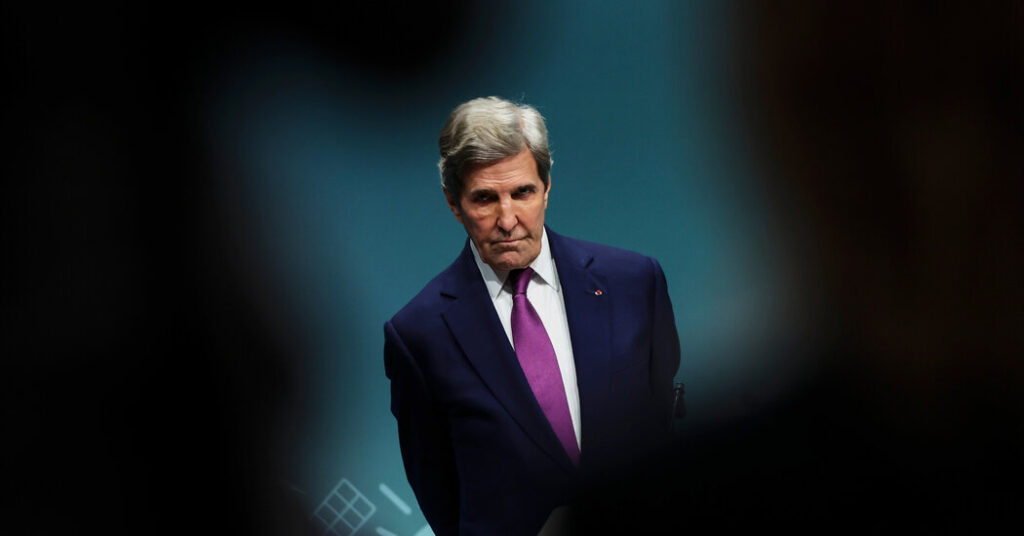The deal that 198 countries struck this week to transition away from fossil fuels is “the most important decision since the 2015 Paris Agreement,” John Kerry, President Biden’s special envoy for climate change, said on Friday.
The global deal struck at the annual U.N. climate summit in Dubai marked the first time in nearly three decades that diplomats have grappled with climate change and been willing to name its fundamental culprit: the burning of coal, oil and gas.
After two weeks of hard-fought negotiations in which countries highly vulnerable to climate disaster pushed for a complete “phase-out” of fossil fuels, and major oil exporters led by Saudi Arabia refused to even consider such language, governments reached a compromise .
The final deal calls for an “elimination of fossil fuels” this decade in a “just, orderly and equitable manner,” while tripling renewable energy such as wind and solar power.
“I think the ‘transition’ provided a way for certain parties to feel that their concerns were somewhat listened to and taken into account, because there was an outright refusal from several quarters to not allow a phase-out to accept,” said Kerry. said in an interview Friday.
Many island nations criticized the final deal, saying it does not go far enough. But Kerry said the willingness of countries – even those that are major oil exporters – to acknowledge that the age of fossil fuels must eventually end underlines the “urgency” of the deal.
“This agreement is the most important decision since the Paris agreement,” Kerry said, referring to the historic 2015 climate accord. “It rests on the unanimity with which people said we’re going to move forward. We are going to move away from fossil fuels.”
Not everyone is convinced. Prince Abdulaziz bin Salman, Saudi Arabia’s energy minister, said in an interview with Al Arabiya, a television network in Saudi Arabia, that the deal would not affect his country’s ability to sell its crude oil.
Sultan Al Jaber, the Emirati oil executive who chaired the climate summit known as COP28, told The Guardian in an interview that the United Arab Emirates’ national oil company would also continue investing in crude.
Mr. Kerry emphasized that these statements do not point to loopholes in the climate agreement.
“Can they sell their crude oil today, tomorrow, next week, next year?” said Mr. Kerry. “Certainly.”
But he added: “They, like everyone else, will have to move away from fossil fuels.”
“You can speak with bravado and say, yes, we will continue to invest,” Mr. Kerry said. “But if people do what they promised, this will be a diminishing effort over time. And more and more investments will move towards renewable, clean energy.”
Mr. Kerry said the fight to control climate change requires confronting the world’s still-growing appetite for oil and gas. Oil production is rising in the United States and the Biden administration faces a looming decision on whether to expand exports of liquefied natural gas.
Mr. Kerry noted that the Inflation Reduction Act, which President Biden signed last year, pledged to invest $370 billion in clean energy sources over 10 years. It also included incentives to encourage people to drive electric vehicles, install solar panels on roofs and boost renewable energy efforts across the country.
The transition to renewable energy “isn’t going to happen magically because everyone sits there and does business as usual,” Mr. Kerry said. “Business as usual must change.”
